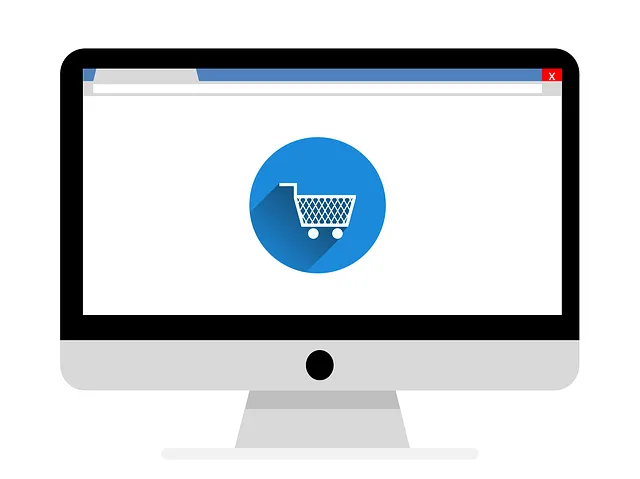Confidential Computing for Human Rights Activists is a revolutionary approach that safeguards user privacy and security while enabling advanced marketing analytics. By employing techniques like VPNs, HTTPS encryption, and secure browsers, activists protect sensitive data during web navigation in repressive regimes. This concept encourages a balance between data-driven insights and digital privacy in modern marketing, fostering trust through consent, transparency, and secure storage practices.
In today’s digital age, marketing professionals must navigate a complex landscape where data privacy is paramount. This article explores the concept of confidential computing from a marketing perspective, highlighting its potential in safeguarding sensitive information. We delve into the unique role of ‘stealthy web surfing’ in human rights advocacy, where anonymous browsing enables activists to gather insights without compromising security. Furthermore, it discusses practical steps to implement secure browsing practices and ethical considerations for maintaining digital privacy while conducting vital research.
- Understanding Confidential Computing: A Marketing Professional's Perspective
- The Role of Stealthy Web Surfing in Human Rights Advocacy
- Implementing Secure Browsing Practices for Sensitive Data
- Ethical Considerations and Best Practices for Digital Privacy
Understanding Confidential Computing: A Marketing Professional's Perspective

Confidential computing is a revolutionary concept that prioritises data privacy and security, especially in sensitive sectors like marketing. From a marketing professional’s standpoint, this technology ensures that user interactions and personal information remain secure while enabling advanced analytics and insights generation. By employing confidential computing techniques, marketers can process vast amounts of data without exposing private details to potential threats or prying eyes.
This approach aligns perfectly with the principles of human rights activism, where protecting sensitive data is paramount. Confidential Computing for Human Rights Activists isn’t just a buzzword; it’s a powerful tool to safeguard personal information while still leveraging the potential of advanced computing, fostering an environment where privacy and progress can coexist harmoniously.
The Role of Stealthy Web Surfing in Human Rights Advocacy

In the digital age, confidential computing has emerged as a powerful tool for human rights activists, enabling them to navigate the web with enhanced discretion and security. Stealthy web surfing, or the practice of maintaining anonymity online, plays a pivotal role in advocating for human rights by safeguarding sensitive information and communications. This approach is particularly crucial when activists operate in repressive regimes where internet activity is closely monitored.
By employing techniques such as virtual private networks (VPNs), encrypted messaging platforms, and secure browsers, human rights advocates can surreptitiously gather evidence of human rights abuses, connect with like-minded individuals, and share critical information without leaving traces that could compromise their safety and the security of their operations. This confidential computing approach fosters a more robust and resilient movement for human rights in an increasingly digital world.
Implementing Secure Browsing Practices for Sensitive Data

In the digital age, where marketing professionals often engage in sensitive data collection and analysis, implementing secure browsing practices is paramount. Confidential computing for human rights activists and other stakeholders involves utilizing encrypted connections, such as HTTPS, to safeguard information exchanged between users and servers. This ensures that even if data is intercepted, it remains unreadable without the decryption key.
Furthermore, leveraging virtual private networks (VPNs) enhances privacy by routing internet traffic through secure servers, masking IP addresses, and preventing websites from tracking browsing habits. Combined with secure browsing extensions that block trackers and ads, these practices foster a more clandestine web surfing experience, enabling professionals to navigate the digital landscape with enhanced discretion while handling confidential data.
Ethical Considerations and Best Practices for Digital Privacy

In the pursuit of effective marketing strategies, the concept of stealthy web surfing raises important ethical questions. Marketing professionals must navigate a delicate balance between gathering insights and respecting digital privacy. With the rise of data-driven marketing, it’s crucial to adopt best practices that safeguard personal information, especially in an era where confidential computing for human rights activists is becoming increasingly vital.
One key consideration is obtaining explicit consent from individuals before collecting or analyzing their online behavior data. Transparent communication about data usage and purpose builds trust with audiences. Additionally, leveraging anonymized data and ensuring secure storage of sensitive information are essential practices to maintain ethical standards while harnessing the power of digital footprints for marketing purposes.
In today’s digital landscape, Confidential Computing offers a powerful tool for Marketing Professionals and Human Rights Activists alike. By adopting stealthy web surfing techniques and secure browsing practices, individuals can protect sensitive data while navigating the online world. Balancing privacy, ethics, and best practices is essential to ensure the effectiveness of advocacy efforts and maintain the integrity of digital interactions. Understanding and implementing these principles are key steps towards creating a safer and more secure online environment for all stakeholders.
